5. The Visitor
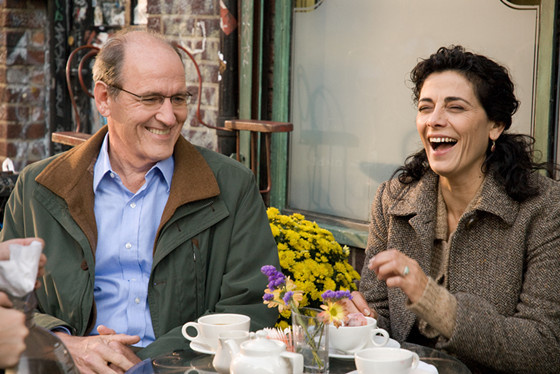
“The Visitor” is a delightful film, much in the same vein as Thomas McCarthy’s other masterpiece “The Station Agent” – a film that equally deserves to be on this list, but since “The Visitor” is less well known, I thought I’d add this film instead.
“The Visitor” tells the tale of an introverted college professor Walter (Richard Jenkins, in a well-deserved first leading role) who, after the death of his wife, has long lost his passion for both his work and life. When he returns to his apartment in Manhattan, he discovers it’s been secretly rented out to an immigrant couple, a man named Tarek (Haaz Sleiman) and a woman named Zainab (Danai Gurira).
At first he tells them to leave, but after letting them stay the night, he begins to warm to them and soon enough, a friendship blooms between them. Not only that, Tarek’s love of drumming s over to Walter and the instrument gives him a new passion for life.
Aside from it being a thoughtful character study, the film also focuses on immigration and combating government bureaucracy – and how swiftly families can be torn apart by the system. McCarthy handles this respectfully, never succumbing to cheap Hollywood sentiments. The third act feels deserved; we understand the characters and there’s no need to spell things out. This is the kind of film most dramatists wish they could make but only a few filmmakers, like McCarthy, are able to do this.
There’s always something beautiful about strangers finding each other. Not just a love story, but about friendships blooming between very different people. To be lonely in a crowded world and be finally seen and heard by others. You thought you had everything already figured out and then suddenly, you meet people who give you a new perspective on life.
But just like in real life, the people we love cannot always stay with us – sometimes it’s death that takes them away, sometimes it’s a flawed bureaucratic system. Soon enough we find ourselves alone again, playing songs that remind us of the people we lost.
4. Paterson
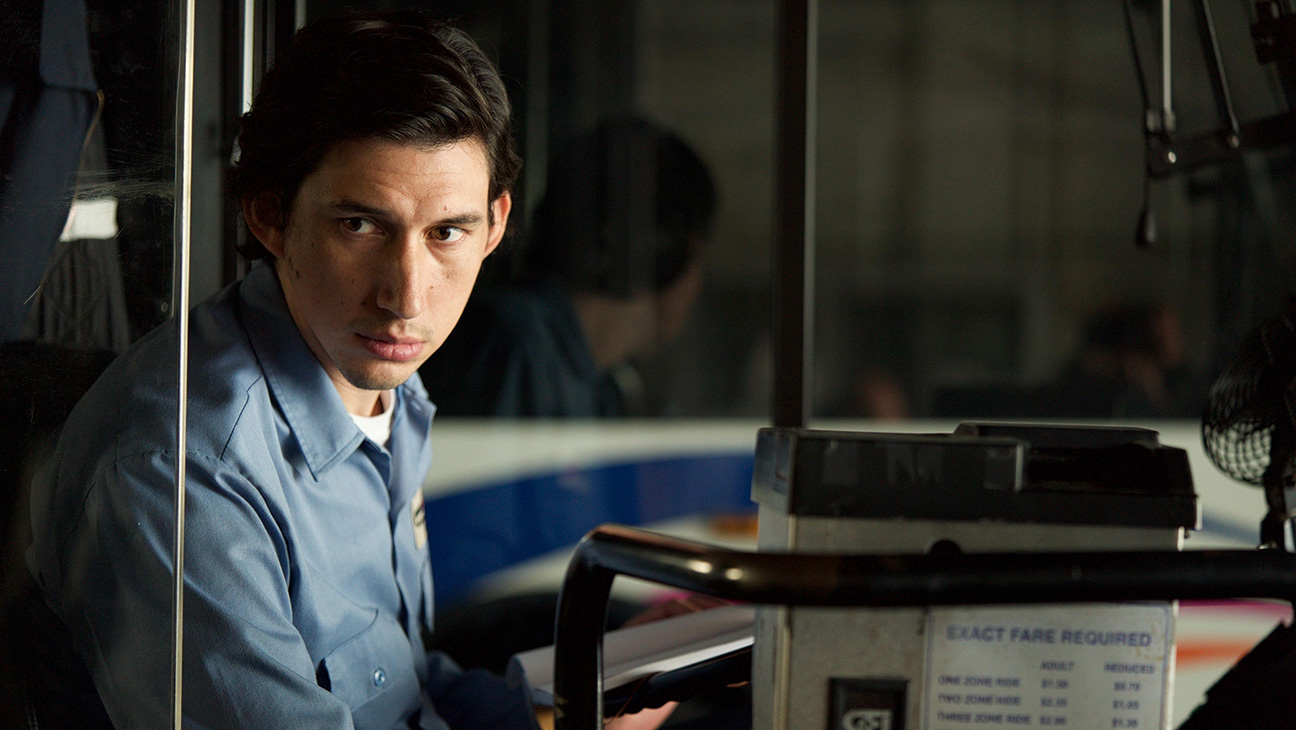
If you didn’t like Jim Jarmusch’s previous works, you would be advised to stay away from “Paterson,” which is a Jim Jarmusch joint all the way through. The pacing is slow, the tone varies from thoughtful to wacky, and there’s barely any plot to be found. If you can’t stand this kind of stuff, this film will annoy the hell out of you. For his fans, however, and for those sick and tired of all the rapaciously-paced blockbusters, this film will be a blessing.
As I’ve mentioned before, there is no real plot. It’s simply the week in the life of a bus driver/poet named Paterson (Adam Driver) in the city of Paterson, New Jersey. We follow his routine throughout the week: getting up, going to work, eating his lunch, writing poetry close by his favorite site, The Great Falls of Passaic River. He lives with his girlfriend, Laura (Golshifteh Farahani), an artist, a wannabe country singer and a helluva of a cupcake cook.
Paterson can’t stand their English bulldog Marvin but he walks him every time he comes home. During his walk he puts him on a leash outside his local bar and has a beer, talking to his chess-loving bartender Doc (Barry Shabaka Henley) and observing and sometimes talking to the various characters that come and go.
We see Paterson listening intently, enjoying the diversity of characters that roam the streets – Paterson as a place is well-known for its diverse immigrant populace. He’s interested in people’s stories. He’s content with his life. His girlfriend constantly tells him to copy his notebook full of poems but he rarely feels the urge. He’s content with just sitting down and writing them for himself.
Sometimes the film follows Paterson’s creative process. We see the spark of a poem and later on we see him complete it- using the voice-over of Driver, accompanied by images of the city of Paterson. The poems themselves are from Ron Padgett, who even wrote some original poems for the film.
Jarmusch obviously fell in love with the city of Paterson and this film is a loving ode to the city and its people. It’s also a wonderful tribute to Ron Padgett and to poetry in general – as a man who sometimes dabbles in poetry, it was right up my alley.
It’s a film that celebrates the small things in life. It’s about enjoying every last crazy moment we have on this earth. When things go down, remember this: sometimes an empty page presents the most possibilities.
3. Wild Strawberries
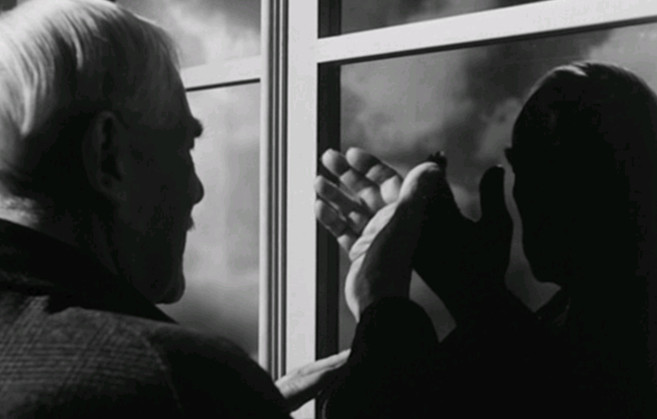
We all fail to realize the potential of our youth. It doesn’t matter how much our elders preach to us about the preciousness of youth – we fail to understand the immensity of this temporary blessing. How could we not? There are too many things going on.
While we try to understand it all, we also try to claim some dignity, respect and some form of identity. There is so much we don’t understand. Even the things we think we understand, we might later find out we didn’t understand it at all. If we were focused enough, we could have studied a particular subject or a craftsmanship that could have saved us so much trouble in the past. We would have had more money. We wouldn’t have been so afraid. We could all have been contenders.
“Wild Strawberries” is about such a subject and so much more. It’s about nostalgia and old age so that means it’s inevitably about regrets. And death, the thing that’s always out there. But ultimately, even if it delves into existential dread in a way only Ingmar Bergman could, it’s a hopeful film. It tells us that no matter how much time we’ve wasted, hiding from our demons and lying to ourselves, there is no such thing as thing as a wasted life. We just have to find the courage to examine ourselves.
The film tells the story of a stoic professor, Isak Borg (Victor Sjostrom), as he travels from Stockholm to Lund University to pick up his Jubilee Doctor. His perky daughter-in-law Sara (Bibi Anderson), a person completely different from Borg’s nature, joins him. Along the way they pick up a bunch of hitchhikers who force Borg to reflect upon his life. The road will be paved with memories, dreams and nightmares and by the end of the film, we begin to understand the origins of his withdrawn character.
Eventually, if we are lucky, we all come to this point. What matters most is then is how honest we can be about ourselves. How much have we learned and can we appreciate the blessings we have? The age-old question after receiving nirvana: will we remember? Will we remember what we’ve learned this time?
The film asks tough questions but it does so in an honest yet tender way. We all hope we can sleep like Borg at the end, smiling, knowing that that it’s been a beautiful ride – knowing too that no matter how little time is left, we won’t waste any of it.
2. Ikiru
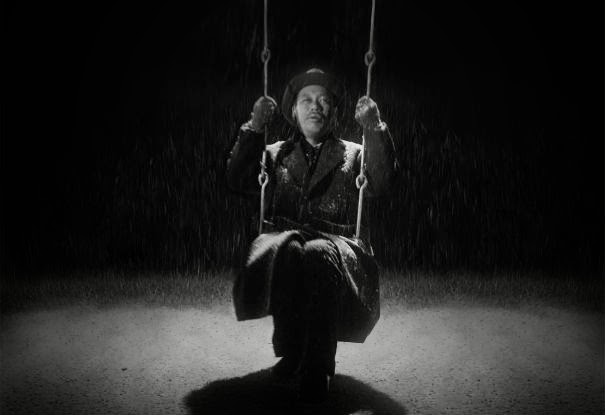
Just give me time for one last thing. Just one last thing, and then I’ll be okay with it… So goes the story of Kanji Watanabe (Takashi Shimura) a lonely bureaucrat whose life is hidden behind endless paperwork.
In the beginning of the film, we see the dehumanizing machine of bureaucracy going about its business: people are transferred from one department to the next, nobody seems to care to help these people. The narrator already tells us that Watanabe is dying from stomach cancer, although he himself doesn’t know this yet. When this is finally revealed to him, Watanabe is lost. He has no clue what to do with the little time he has left – approximately six months to a year.
The first half of the movie is Kanji seeking a purpose. He goes out drinking and partying with a friendly novelist (Yunosuke Ito) and spends an abundance of his time with a young female clerk (Miki Odagiri). His co-workers and family members are perplexed by his behavior as most of them don’t know about his terminal illness, which he mostly keeps to himself. When Kanji finally does find a purpose, the film takes a time-jump into the future and it is revealed what Kanji has done with his precious few moments.
The film is loosely inspired by Leo Tolstoy’s “The Death of Ivan Ilych,” which also deals with an elderly man coming to terms with his mortality. Director Akira Kurosawa considered this film his greatest work and it’s not hard to see why. It might not be as sprawling or suspenseful as his classic samurai thrillers, but it’s an incredibly moving and intimate work of art, with a theme that couldn’t be more timeless.
If we are lucky to know the little time that’s left, what the hell are we going to do with it? Just like Isak Borg at the end of “Wild Strawberries,” we hope we will come to that moment where we can smile about it all. We hope to be as blessed as Kanji Watanabe one day, a man who in his last moments sat alone on a swing, singing a happy song to himself. Perhaps he knew he was going to die, but that’s okay. He’s done his duty. It’s been swell.
1. Goodbye Solo
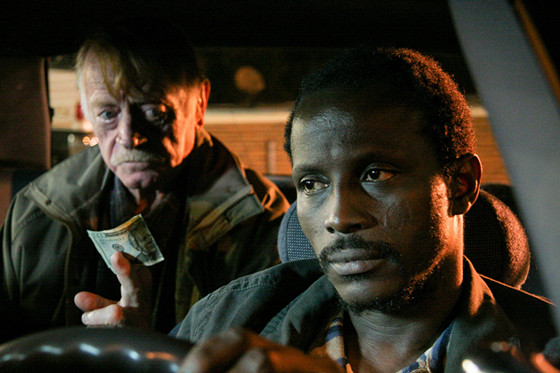
If you go on IMDb you’ll find that this movie has only 52 reviews. It fares better on Rotten Tomatoes, but considering the crap that does receive hundreds of viewers, it’s not very impressive. The film has yet to receive the glory of a Blu-ray transfer. As you will probably notice, “Goodbye Solo” is not a film that is extremely popular among the mainstream crowd.
The film’s unknown cast won’t make people flock to see it. The film’s plot does not involve any men in robot suits beating the shit out of each other. But at the end of the film, you realize that this is one of those very special films.
The story could be easy fodder for Hollywood hacks. An immigrant taxi driver named Solo (an endearing turn by Souleymane Sy Savane) gets an intriguing offer from an old man named William (a moving turn by Red West), to drive him to the top of the mountain in Blowing Rock National Park, a place commonly used for suicides due to its picturesque view as the extreme windiness makes the snow rise up.
Solo suspects that William isn’t planning to return from that place and hopes to change William’s mind before that very day by introducing him to his friends and family, hoping to imbue some life-saving joy into his life.
Solo is spontaneous, warm and full of life. His open-hearted nature makes him impossible to dislike. William is the antithesis: introverted, hard to talk to and pushes you away if you come too close. He seems constantly tired, with his disheveled hair and big bags under his eyes. It’s as if he long lost hope for himself. We never know exactly what transpired in the past but it doesn’t matter, it’s not something we need to know. We know enough just by looking into the man’s eyes.
The dynamic between these different characters work brilliantly. There’s humor to be found in Solo’s tireless efforts to make William smile. You can see that William knows the game Solo’s playing and though he says he wants to be left alone, he can’t help but be charmed by Solo’s spirit.
Solo never pushes William to reveal his demons until the eventual third-act but by then, it’s already too late. They are both changed somehow, though Solo changes more than William, even if you sense that by the end, William wishes he could. Solo’s final act is one of true love, something so true to his character. The final look these two characters give each other is heartbreaking.
Director Ramin Bahrani is someone to look out for. Each of his films is something special and though his last film – “99 Homes” – involved well-known Hollywood stars, he always seems to be making films on his own terms, never compromising himself for Hollywood. “Goodbye Solo” will always be my favorite film of his and if you are lucky enough to find it, I hope it will enhance your life as much as it did mine.
Author Bio: Chris van Dijk is a writer and self-proclaimed cinematic-connoisseur who started his unhealthy obsession with film at a very young age. He’s famous for being an incredible slob, taking himself way too seriously and getting along brilliantly with anyone who agrees with him. If you are interested in his writing you can follow his weekly blog at https://welcometothehumanrace.wordpress.com/. If you are interested in his obnoxious tweets you can follow his account at https://twitter.com/stubbornwaves.